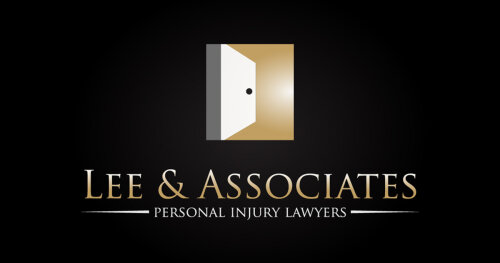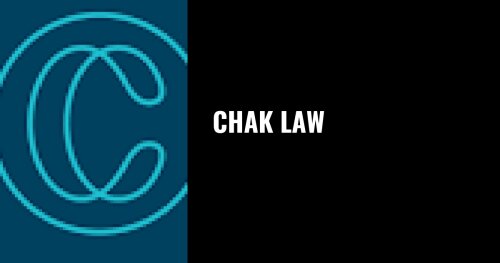Best Medical Malpractice Lawyers in Canada
Share your needs with us, get contacted by law firms.
Free. Takes 2 min.
Or refine your search by selecting a city:
List of the best lawyers in Canada
About Medical Malpractice Law in Canada
Medical malpractice in Canada refers to a situation where a healthcare professional or institution fails to provide the appropriate standard of care, leading to harm or injury to a patient. This type of legal case falls under the domain of tort law, wherein the plaintiff must prove that the healthcare provider acted negligently. The Canadian healthcare system maintains high standards, but errors can occur, prompting the need for legal recourse when medical negligence leads to significant harm.
Why You May Need a Lawyer
Several common scenarios may require the expertise of a lawyer in cases of medical malpractice. These can include misdiagnosis or delayed diagnosis, surgical errors, medication mistakes, childbirth injuries, or failure to obtain informed consent. When injury, harm, or adverse outcomes result from healthcare treatment, a lawyer specializing in medical malpractice can help navigate the complexities of the case, ensuring appropriate legal action is taken, and compensation is pursued where justified.
Local Laws Overview
Medical malpractice laws in Canada are governed by the principles of negligence and are subject to provincial and territorial regulations. Key aspects include the requirement to establish a "standard of care" that was not met by the healthcare provider, and that this breach caused harm to the patient. Each province has its own statute of limitations, often requiring that claims be filed within two years of the date of discovering the injury. The Canadian Medical Protective Association (CMPA) often defends physicians, making expert legal representation crucial for the plaintiff.
Frequently Asked Questions
What is the definition of medical malpractice in Canada?
Medical malpractice occurs when a healthcare professional fails to provide the standard of care expected, resulting in harm or injury to the patient. This can involve errors in diagnosis, treatment, or health management.
How do I prove medical malpractice?
You must establish that there was a duty of care owed by the healthcare provider, a breach of that duty, an injury sustained due to the breach, and resultant damages from the injury.
What is the statute of limitations for medical malpractice in Canada?
The statute of limitations varies by province but generally, claims must be filed within two years from the date the injury is discovered or reasonably should have been discovered.
Can I sue a hospital or medical institution?
Yes, legal claims can be pursued against hospitals or healthcare facilities if it is determined that systemic issues or staff negligence contributed to the harm.
Do I need to pay upfront for legal services?
Many medical malpractice lawyers work on a contingency fee basis, meaning you may not have to pay unless you win your case. Discuss payment structures with your lawyer upfront.
What types of compensation can I seek?
Compensation can cover economic losses like medical bills and lost wages, non-economic damages like pain and suffering, and sometimes punitive damages depending on the case's circumstances.
How long does a medical malpractice case take to resolve?
A case can take months to several years to resolve, depending on its complexity, court schedules, and whether it goes to trial or is settled out of court.
Is it difficult to win a medical malpractice case?
Medical malpractice cases can be challenging to prove due to the need for expert testimony, the complexity of medical information, and defending the professional standards of care.
What role do expert witnesses play in medical malpractice cases?
Expert witnesses provide testimony to establish the standard of care expected and how the defendant failed to meet this standard, which is crucial for supporting the plaintiff's claims.
Can a doctor lose their license due to medical malpractice?
While medical malpractice settlements typically do not result in loss of a medical license, significant cases of professional misconduct may be reviewed by medical licensing boards for potential disciplinary action.
Additional Resources
For individuals seeking further information on medical malpractice, resources such as the Canadian Medical Protective Association (CMPA), provincial health ministries, and law society directories can be invaluable. Organizations like the Canadian Patient Safety Institute (CPSI) also provide insights into patient safety and advocacy.
Next Steps
If you believe you have a medical malpractice case, it is essential to act promptly. Start by consulting with a qualified medical malpractice lawyer to evaluate your situation. Gather all relevant medical records, document your communications with healthcare providers, and avoid discussing your case publicly. Your lawyer will guide you through the process, help build your case, and advocate on your behalf through negotiation or litigation.
Lawzana helps you find the best lawyers and law firms in Canada through a curated and pre-screened list of qualified legal professionals. Our platform offers rankings and detailed profiles of attorneys and law firms, allowing you to compare based on practice areas, including Medical Malpractice, experience, and client feedback.
Each profile includes a description of the firm's areas of practice, client reviews, team members and partners, year of establishment, spoken languages, office locations, contact information, social media presence, and any published articles or resources. Most firms on our platform speak English and are experienced in both local and international legal matters.
Get a quote from top-rated law firms in Canada — quickly, securely, and without unnecessary hassle.
Disclaimer:
The information provided on this page is for general informational purposes only and does not constitute legal advice. While we strive to ensure the accuracy and relevance of the content, legal information may change over time, and interpretations of the law can vary. You should always consult with a qualified legal professional for advice specific to your situation.
We disclaim all liability for actions taken or not taken based on the content of this page. If you believe any information is incorrect or outdated, please contact us, and we will review and update it where appropriate.
Browse medical malpractice law firms by city in Canada
Refine your search by selecting a city.














